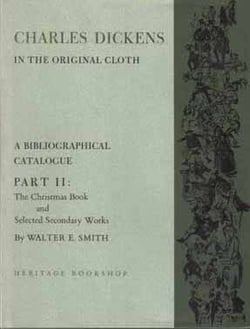Walter Benjamin, in his 1940 ‘Theses on the Philosophy of History’ discusses the way in which historical narratives constantly reshuffle themselves. Because we can’t see into the future, he says, history always leads to the precise moment of the present, and must change with each new historical moment in order to seem coherent. As it is with history, so too is it with the literary canon. Herman Melville’s Moby-Dick (1851) was transmuted from a rare flop by a popular author to one of the most important works in English only when it became clear that novels of the 20th century were deeply indebted to it. By the same token, Shakespeare’s Hamlet (1603) can be seen to have a significant Oedipus Complex, but only after Sigmund Freud’s exegesis on the topic was it possible to recognize it as such. Though perhaps more subtle, it is in this way that Argentine short story impresario Jorge Luis Borges can be seen to have reshaped the way we read Charles Dickens.
 Borges himself, speaking to the above with specific regard to Franz Kafka, averred, “(t)he fact is that each writer creates his precursors.” And while Borges’ work sheds new light in certain obvious places (explicitly drudging up the ‘new resonances’ of Don Quixote (1605) in his work the same way Ralph Ellison implicitly returned to elements of Moby Dick) it also reconfigures, perhaps less obviously, the work of Charles Dickens.
Borges himself, speaking to the above with specific regard to Franz Kafka, averred, “(t)he fact is that each writer creates his precursors.” And while Borges’ work sheds new light in certain obvious places (explicitly drudging up the ‘new resonances’ of Don Quixote (1605) in his work the same way Ralph Ellison implicitly returned to elements of Moby Dick) it also reconfigures, perhaps less obviously, the work of Charles Dickens.
According to the blog Dickens Done Write*, though he only mentions the Victorian literary juggernaut a handful of times in his critical writings, Borges’ abiding interest in labyrinths gives retroactive significance to otherwise casual-seeming references to mazes and labyrinths in Dickens’ Bleak House (1852-1853). Mentions of libraries (another favorite trope for Borges) are likewise given new significance, with Dedlock’s mention of “the little library within the larger one” recalling the infinite library of Borges’ 1941 story "The Library of Babel." Though these moments don’t necessarily cause us to assume that Dickens was secretly meditating on metafiction and the nature of the infinite in his novels, they allow us, in Borges’ wake, to see those themes running under the surface all the same. When we wade into and out of the dense fog that begins and ends Bleak House, we can ruminate (as Borges did) on the nature of storytelling and the creation of the foreign, mysterious worlds that it entails, whether Dickens meant for us to do so or not.
 While the text-level connections in the works of those two authors give readers plenty to consider, the most striking connection may not be textual but historical. As Jean-Philippe Barnabe points out in his “Borges as a Reader of Dickens” piece, Borges’ 1943 story "The Secret Miracle" follows a writer who is captured by the Nazis just as he had begun work on a novel entirely different from that which he had previously written. Though he is to be executed, he prays for one year to complete the book, and as he faces the firing squad his prayer is answered and he completes the work.
While the text-level connections in the works of those two authors give readers plenty to consider, the most striking connection may not be textual but historical. As Jean-Philippe Barnabe points out in his “Borges as a Reader of Dickens” piece, Borges’ 1943 story "The Secret Miracle" follows a writer who is captured by the Nazis just as he had begun work on a novel entirely different from that which he had previously written. Though he is to be executed, he prays for one year to complete the book, and as he faces the firing squad his prayer is answered and he completes the work.
Dickens, for his part, enacted almost the inverse of this story, beginning to write, for the first time in his life, a murder mystery/detective novel (a genre that Borges loved) called the The Mystery of Edwin Drood (1870) just before his death. Though he made references to friends and family regarding how the work would end, he died before he had revealed who the murderer was. In addition to mirroring the "The Secret Miracle," Dickens’ unfinished manuscript also recalls Borges’ 1936 story "The Approach to Al-Mu’tasim," which is a review of a fictional mystery novel. The novel, which focuses on the search for Al-Mu’tasim, who is presented as a sort of mysterious spiritual being, and ends just before Al-Mu’tasim’s identity is revealed.
Fittingly for Borges, the strangest thing about The Mystery of Edwin Drood comes as a sort of footnote. In 1917, forty seven years after the publication of the unfinished manuscript, G.K. Chesterton (another favorite of Borges’) arranged a mock trail for John Jasper, uncle to the murdered Edwin. George Bernard Shaw served as foreman of the jury, which ultimately determined that Jasper was guilty of manslaughter (there being insufficient evidence to charge him with murder). This so enraged both sides that Chesterton fined everyone involved except himself for contempt of court. While reading Borges into Dickens may be a fairly subjective critical move, it’s hard to deny that in this regard, Dickens' life did resemble a Borges story.
*Source here.









